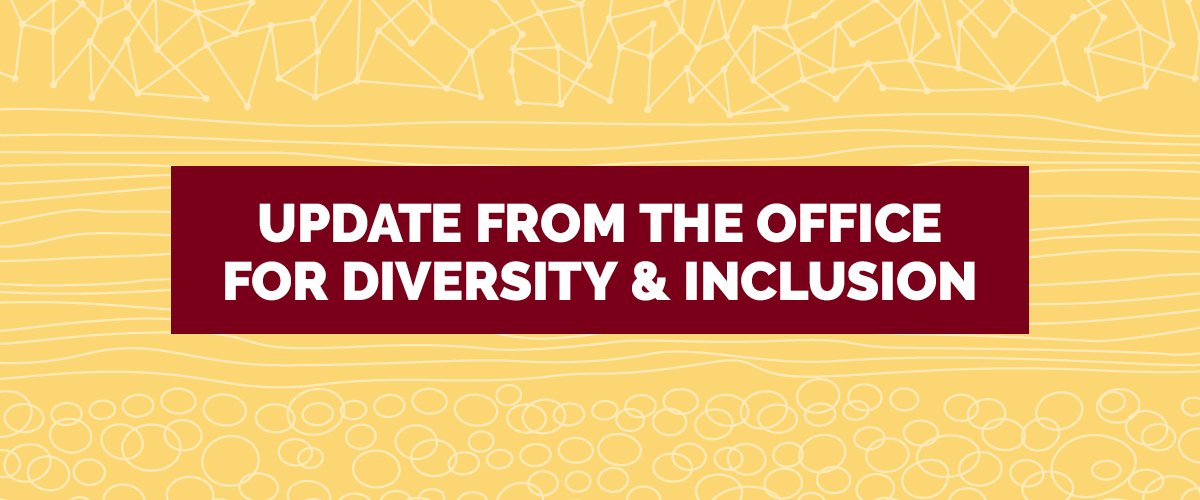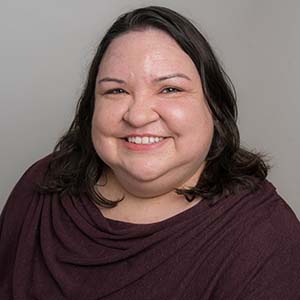
Jody Gray shares hopes, suggestions for an anti-racist CFANS

Her background
Jody Gray began in her role as the CFANS Office for Diversity and Inclusion Director last September. She is an experienced leader in the areas of equity, diversity, and inclusion with a demonstrated history of working in large, complex libraries, non-profit organizations, and higher education institutions. A Cheyenne River Lakota, Jody brings strong professional community and social services experience in equity and diversity training and development, project coordination, leadership, and student and community engagement.
She came to CFANS from the American Library Association (ALA), where she was Director of Diversity, Literacy and Outreach Services, leading development and implementation of the ALA strategic direction on equity, diversity, and inclusion. Prior to that, she was the diversity outreach librarian at the U of M, a position created as a partnership between the University Libraries and the Office for Equity and Diversity. She earned her masters degree in library and information science from the University of Wisconsin, Milwaukee, and her bachelor of science from the University of Minnesota Morris.
Everyone’s everyday work
There is so much work to be done to dismantle systemic racism in our country, our state and our own communities, both short- and long-term. What are the top things you want us to be doing right now, today, to activate this work?
The thing I find myself saying over and over is that this work really starts with yourself. We do need to call out and challenge systems, laws, policies, but if we don’t have individuals doing their own work, then our efforts can fall flat. I encourage individuals to do the work of self-awareness and exploration.
I also think we need to have patience with one another, right now. It has been a year like none I have ever experienced. There is a lot of sustained trauma happening in our world. I think it is important to recognize that this is our current reality. The work of social justice and anti-racism takes a long time. I encourage people to take care of themselves and each other right now.
As the University and CFANS approach this work, what are you most optimistic about? And, what are the biggest challenges or barriers we’ll face as we do it?
I am optimistic that there is an enormous amount of energy and support to center diversity, equity, inclusion (DEI) across CFANS. Since I arrived a little over a year ago I have not had to spend any time convincing anyone how important it is to address DEI. It is clear that CFANS has been doing this work for a long time. They were the first college to have their own Office for Diversity and Inclusion, which started in 2007.
I believe that the barriers we are facing today stem from a lack of communication. After the murder of George Floyd this past summer there have been many calls to action from students, faculty, and staff. This really drove home how much we are not communicating with each other in our efforts.
I started the CFANS Diversity Community of Practice in the late fall of 2019. The purpose of this group was to get everyone at CFANS who is either doing DEI work or passionate about it a place to communicate and learn from one another. So far, we have 129 members who participate in this group. I am also working with the CFANS Communications team to provide more consistent and frequent communication.
DEI work is challenging because we all come to the work from different perspectives and experiences. We use the same words, but we may not all be working towards the same goals. This is another reason our communications and community building are important for success.
How can the CFANS community best champion the work you’re doing in the Office of Diversity & Inclusion across a variety of areas, including anti-racism, fostering a diverse and inclusive culture, and empowering students of color and LGBTQ+ students to become future leaders in food, agricultural and natural resource sciences?
As I said earlier, I appreciate the passion of the CFANS community to strive for a more diverse, equitable and inclusive college. The Office for Diversity and inclusion cannot be successful without that passion and commitment. We are in a reimagining phase of our work. We recently contracted with an outside consultant to lead us through a DEI Strategic planning process. We need everyone to participate in that process for it to be truly impactful.
Tex Ostvig, Diversity and Inclusion Academic Program Specialist, and I are both new to CFANS. We also ask for your patience as we discover how to best serve the CFANS community.






